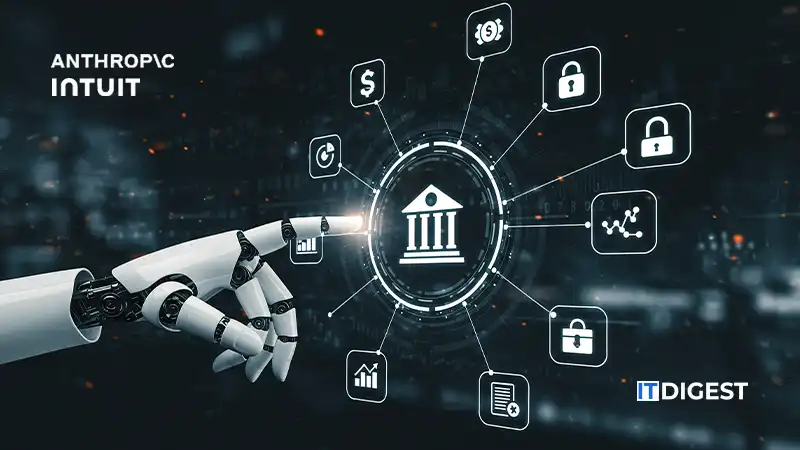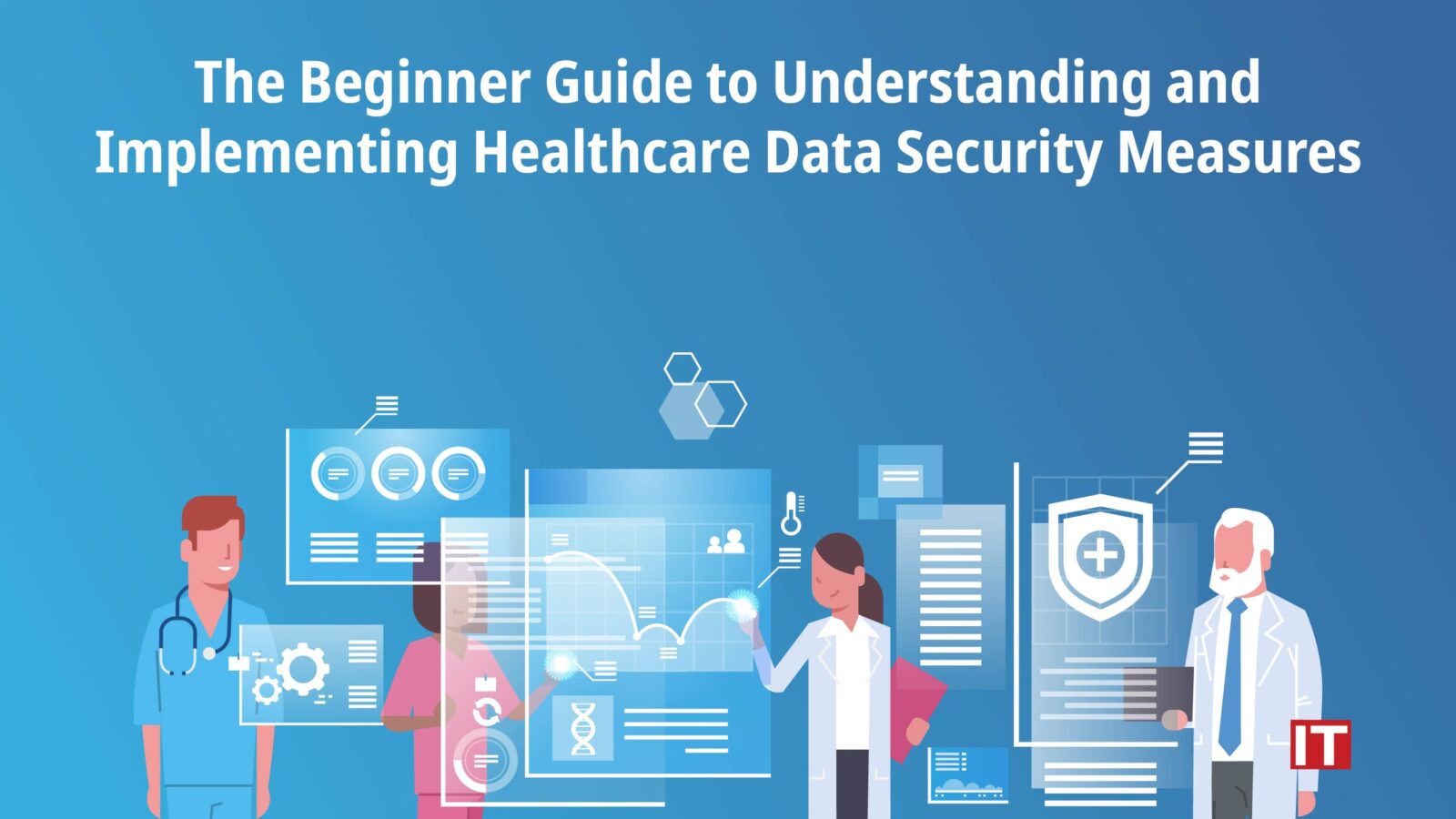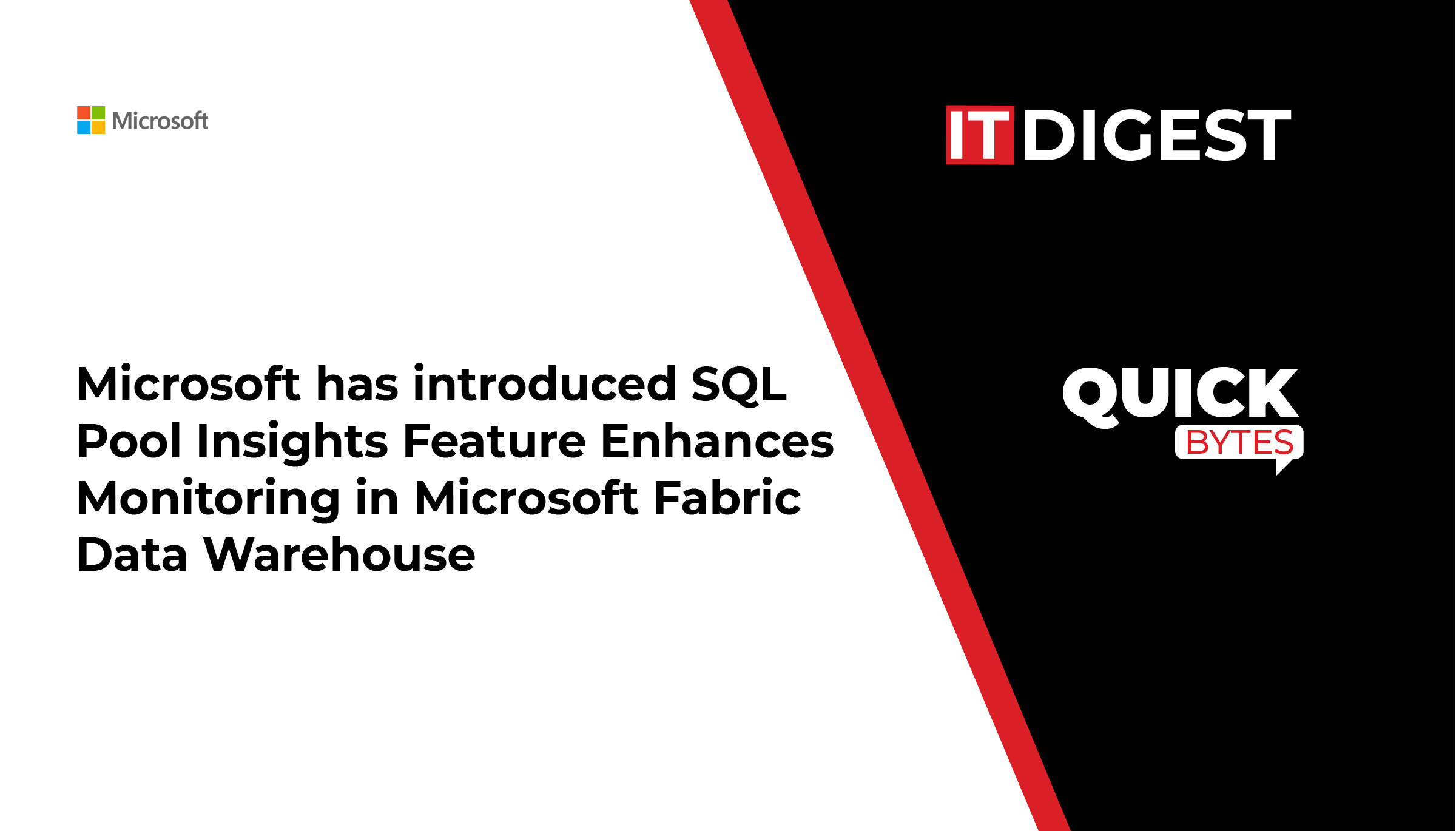The healthcare industry faces a critical challenge when it comes to safeguarding sensitive patient information. With the increasing digitization of medical records and the proliferation of cyber threats, the risk of data breaches and unauthorized access to personal health information is a growing concern.
What if there was a robust solution to protect patient data from falling into the wrong hands, ensuring privacy and security?
This is where healthcare data security technology comes into play. This innovative solution is designed to fortify the digital infrastructure of healthcare organizations, providing advanced encryption, access controls, and threat detection mechanisms to safeguard patient data. By implementing healthcare data security technology, healthcare providers can mitigate the risk of data breaches, uphold patient confidentiality, and maintain the trust of their patients and stakeholders.
Let’s understand the importance of data security in healthcare, shall we?
What is Healthcare Data Security?
Healthcare Data Security entails a series of proactive strategies aimed at safeguarding sensitive patient information. With the rising digitization of medical records and the escalating threat of cyber attacks, healthcare organizations face a critical imperative to establish robust security protocols. Through the adoption of advanced encryption, access controls, and threat detection mechanisms, providers can effectively protect patient data, mitigate the likelihood of breaches, and uphold confidentiality. This not only ensures the privacy and security of patient information but also fosters trust among patients and stakeholders within the healthcare sector.
Some of the prominent healthcare data security companies include Check Point, NowSecure, BlackCloak, Absolute, Agari, and many more.
Why Is Security Important In Healthcare?
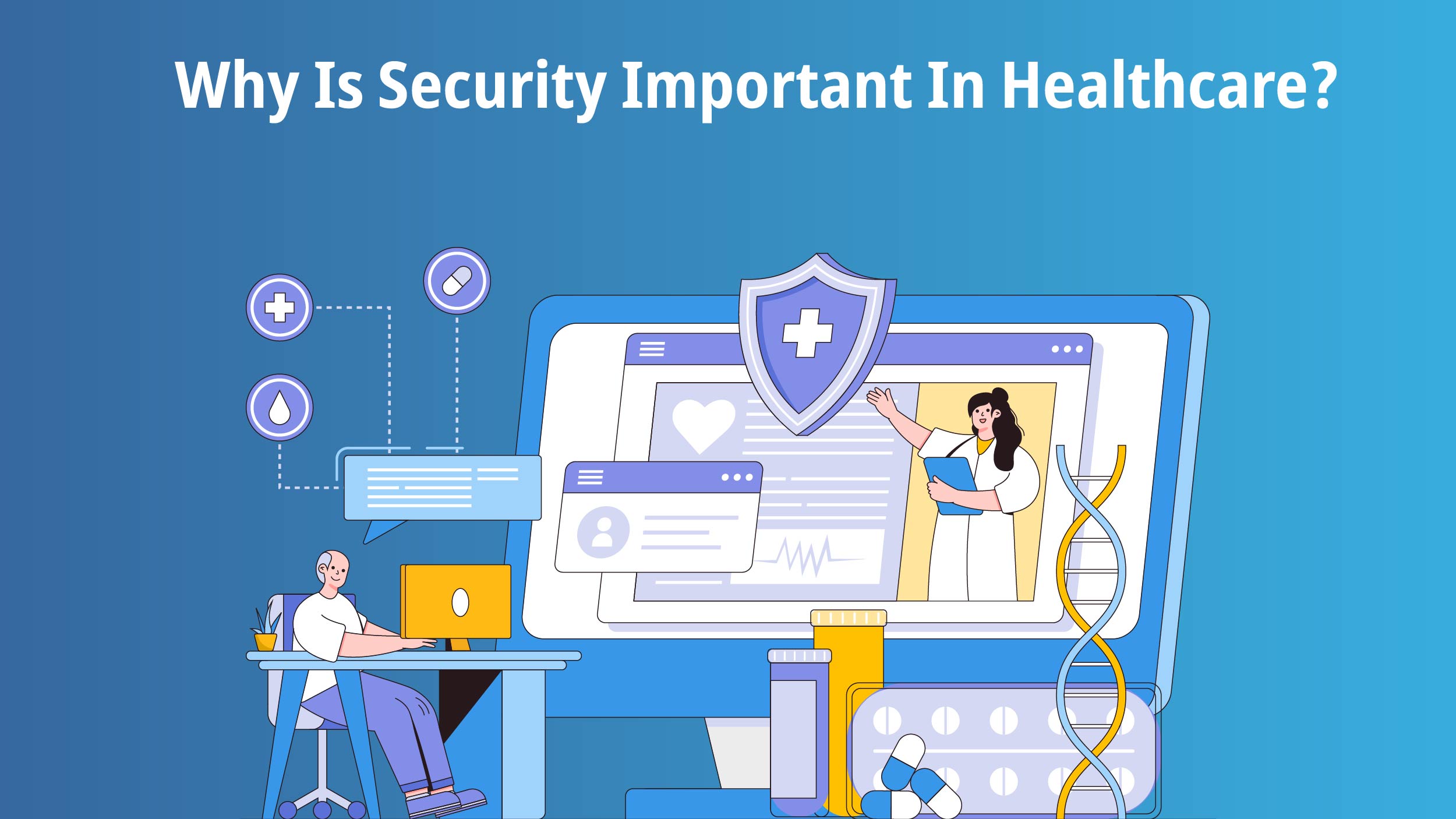 Security plays a critical role in healthcare data for several key reasons:
Security plays a critical role in healthcare data for several key reasons:
Firstly, safeguarding sensitive patient information is paramount. Healthcare organizations hold a treasure trove of data, from medical histories to treatment details, which, if compromised, could lead to identity theft or other criminal activities. Measures like access controls, encryption, and vigilant monitoring are essential to prevent unauthorized access or disclosure of this information.
Secondly, compliance with regulations is non-negotiable. Healthcare entities must adhere to strict standards like HIPAA and GDPR, which mandate specific security measures to protect patient data. Failure to comply can result in hefty fines and legal repercussions.
Also Read : What is Business Analytics in Healthcare and Why is it Important?
Moreover, maintaining patient trust is vital. Patients rely on healthcare providers to keep their information confidential. A security breach can erode this trust, making it crucial for organizations to implement robust security measures to uphold their reputation.
Lastly, cybersecurity threats can lead to significant financial losses. From fraudulent insurance claims to operational disruptions, the financial impact of cyber attacks on healthcare organizations can be devastating. Conducting risk assessments, providing security training, and having incident response plans in place are crucial steps to mitigate these risks.
In essence, security is not just a checkbox in healthcare data—it’s a cornerstone for protecting patient privacy, complying with regulations, fostering trust, and safeguarding against financial losses. Healthcare organizations must prioritize and invest in robust security measures to stay ahead of potential threats.
Advantages of Healthcare Data Security
Healthcare data security offers numerous advantages:
- Enhanced Patient Trust: By prioritizing data security, healthcare organizations instill greater confidence in patients regarding the protection of their personal and medical information. This trust strengthens the bond between patients and providers, fostering a positive patient-provider relationship.
- Legal Compliance: Adhering to essential data security regulations is not just good practice—it’s a legal obligation. Compliance helps healthcare organizations steer clear of legal complications and potential penalties associated with failing to protect patient data adequately.
- Reduced Data Breach Risks: Implementing robust security standards and measures significantly reduces the likelihood of data breaches and unauthorized access to sensitive information. This proactive approach minimizes the risk of potentially damaging breaches and ensures the integrity and confidentiality of patient data.
In upholding data privacy and security, healthcare providers and professionals play pivotal roles in safeguarding the integrity, confidentiality, and accessibility of sensitive patient data.
6 Essential Steps to Enhance Healthcare Data Security
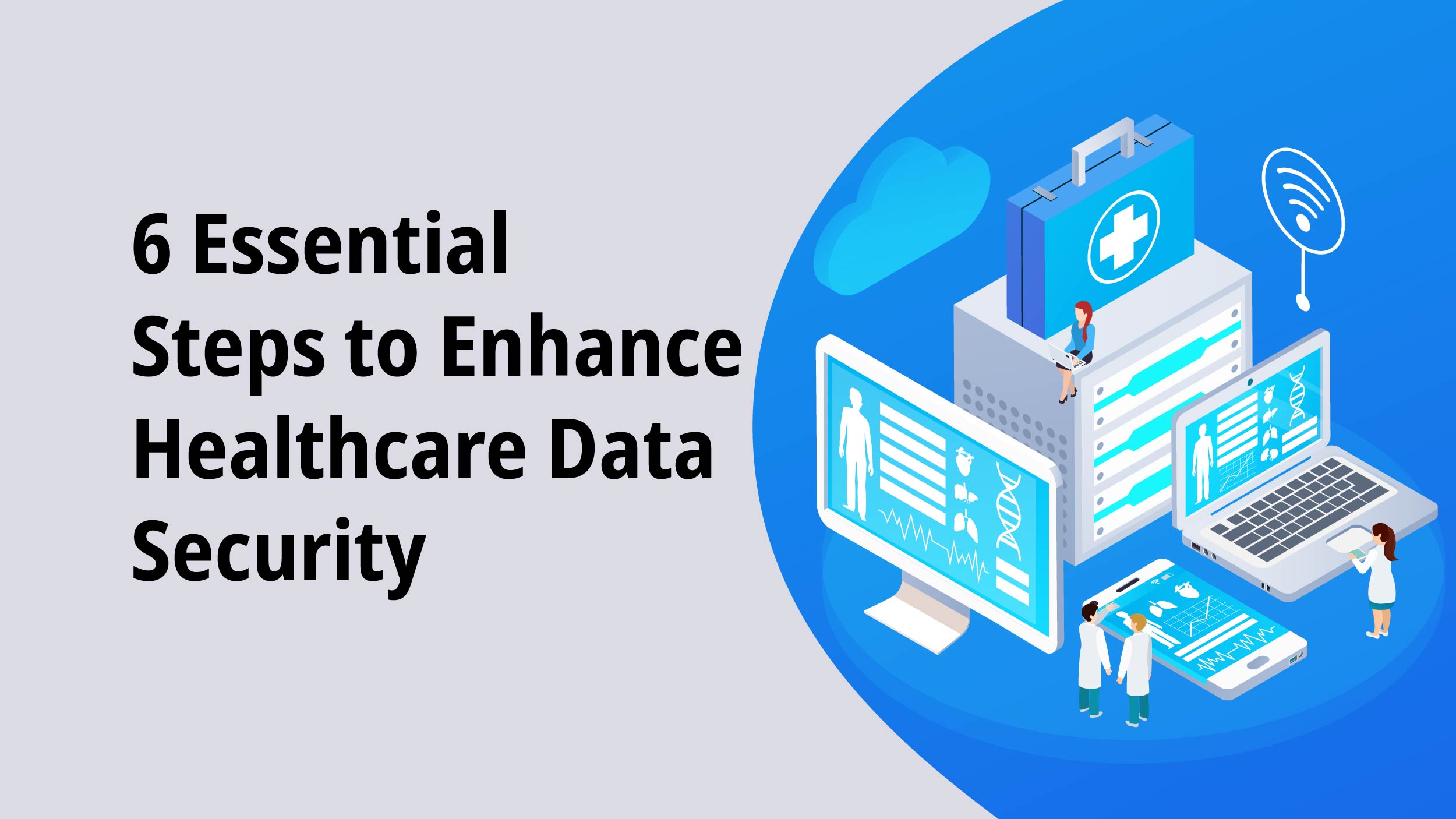 Here are six essential steps to safeguard healthcare data:
Here are six essential steps to safeguard healthcare data:
- Data Encryption: Utilize encryption to securely transmit sensitive data, ensuring its safety during transfer. Encryption requires a decryption key, providing an additional layer of protection against unauthorized access.
- Anti-Virus Applications: Deploy antivirus software to detect and prevent various viruses from infiltrating the organization’s network. These applications also scan systems for existing malware, enhancing overall security.
- System Monitoring Applications: Implement system monitoring tools to track network endpoints and monitor the entire system for any suspicious activities or anomalies, enabling proactive threat detection and response.
- Multi-factor Authentication: Enable multi-factor authentication to enhance login security. This requires users to provide additional authentication factors beyond just a username and password, such as security questions, physical authentication devices, or biometric data like fingerprints.
- Ransomware Protection: Protect against ransomware attacks by deploying anti-malware solutions specifically designed to detect and mitigate ransomware threats. Some cybersecurity providers also offer decryption keys to regain control of systems affected by ransomware.
- Employee Training: Conduct comprehensive training programs to educate employees on best practices for protecting access credentials, securing devices, and recognizing and responding to cyber threats effectively. This proactive approach empowers staff to actively contribute to data security efforts.
By implementing these six steps, healthcare organizations can significantly enhance their data protection measures, mitigating the risk of breaches and ensuring the integrity and confidentiality of sensitive patient information.
Final Takeaway
Healthcare data security is not only essential for safeguarding patient information and maintaining trust but also for complying with regulations and mitigating the risk of data breaches. Prioritizing data security is crucial for the integrity of healthcare operations and the protection of sensitive information, ultimately contributing to the overall well-being of patients and the healthcare ecosystem.










